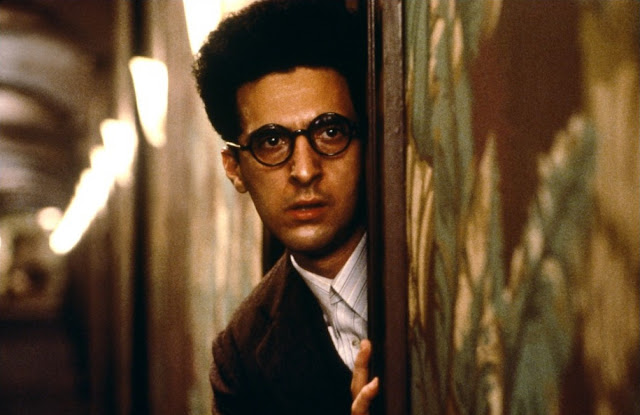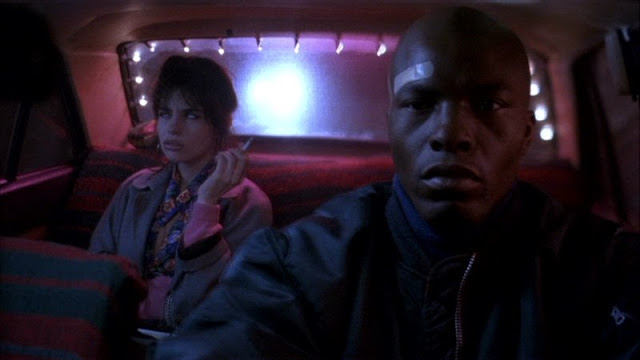Film That I Can't Believe Aren't Featured In The Book
Before I officially get started on this project (which will be later today, I am at my desk job currently), I figure I will go ahead and list films that I feel ought to be included in the book and my reasons why. I know this is an entirely subjective topic but I really can't wrap my head around how some of these aren't featured. In alphabetical order, here is a list of films that weren't included that I consider to be massively influential, important and plain excellent.
One of the Coen's most essential films. For me, what makes this a stand out is how human and fleshed out of a character Llewyn is.
3 Women (1977, Robert Altman)
Features Robert Altman, one of the giants of the 70s, shifting away from the 'overlapping dialogue' ensemble type of film he was known for and venturing into Bergman-esque surrealism. As under the radar as this film went, I feel like it was groundbreaking as far as pushing the boundaries for modern surrealism in cinema. Thankfully the criterion collection has recognized its importance. Surely David Lynch was influenced by it at some point in his career.
After Hours (1985, Martin Scorsese)
Martin Scorsese made some underrated films in the 80s. The book features the equally brilliant King Of Comedy (1982) but this one was sadly overlooked. It features Scorsese venturing into surrealism within the late night New York City atmosphere that he loves so much. Like The King Of Comedy, it's prominent in shifting to his comedic sensibilities that his later films (GoodFellas onwards) would generally feature.
The Assassination Of Jesse James By The Coward Robert Ford (2007, Andrew Dominik)
A modern reinvention of the western genre. Sure the 21st century has given us some excellent neo-westerns (most notably There Will Be Blood and No Country For Old Men) but this was more of a western in the traditional sense. I can't think of another notable western made since Unforgiven (1992) (although I'm sure I'll potentially discover one within this project).
Barton Fink (1991, Coen Brothers)
The biggest problem I have with the book is the lack of Coen Brothers. Seriously, what's up with that? Fargo and Raising Arizona are the only ones featured. I feel they have made some of the most groundbreaking modern cinema. This is where the Coen's started blending surrealism with their unique filmmaking approach.
Before Trilogy (1995, 2004, 2013)
My personal favorite trilogy. In my eyes, these are some of the most organic romance films. They don't rely on any gimmicks or sentimentality. It's all about the purity of following these two around and absorbing their dynamics and chemistry.
The Big Lebowski (1998, Coen Brothers)
I really can't believe this one wasn't included. It's approach towards surreal comedy is unlike anything else. The wacky characters, absurd scenarios and overall attitude towards life make for a timeless classic. Its pop cultural impact is undeniable. There has been a massive cult following every since its release.
Blood Simple (1984, Coen Brothers)
It seems like I'm obsessed with the lack of Coen Brothers here. I feel like their debut was revolutionary in modernizing a Hitchcockian vibe with an offbeat twist. I can't help but feel that this was influential to plenty of indie cinema to come, particularly early Tarantino.
Dazed And Confused (1993, Richard Linklater)
A day in the life of high schoolers in the 70s from the nostalgic lens of the early 90s. Plenty of indie films, especially in this era, had a natural 'hang out' charm to it. I feel like this brought more accessibility to that vibe. Influential to many films to come such as Clerks (1994) and Boogie Nights (1997).
Drive (2011, Nicolas Winding Refn)
The ultimate piece of cinematic cool for the 2010s. I feel like this is where the whole 80s synth revival seen so often in films and music this decade truly became popular. This has been influential to quite a few recent films, such as Nightcrawler (2014) and Blade Runner 2049 (2017). It has a massive cult following and an undeniable pop cultural impact.
Ed Wood (1994, Tim Burton)
A great example of a director straying away from his general style with golden results. Tim Burton's best film in my eyes. A fascinating, hilarious and oddly inspiring biopic on one of the worst directors of all time. I wish Burton would make more films in this vein.
Eyes Wide Shut (1999, Stanley Kubrick)
One of the most unfairly panned films out there. Every bit as masterful as anything else Kubrick made. This is the final statement of a cinematic legend. It seems that its status has risen overtime but it's still massively underrated. It's one of Kubrick's more grounded films, yet it's no less ethereal and layered than his previous works.
George Washington (2000, David Gordon Green)
Heavily influential to modern coming-of-age films, ranging from Moonlight (2016) to The Florida Project (2017).
High And Low (1963, Akira Kurosawa)
This is probably Kurosawa's most Western-influenced film. A perfect gateway for people like myself who had to acquire to his style. A crime thriller that is timeless and endlessly engaging.
Inherent Vice (2014, Paul Thomas Anderson)
I completely understand this one not making it in the book. I think most people, myself included, had no idea what to make of it upon initial viewing. Repeated viewings have greatly enhanced this one. It's not about following the plot but diving into the wacky characters and offbeat atmosphere. I think it's an important achievement in the sense that it adapted a previously considered "un-adaptable" novel (although it's up for debate whether it was successful or not). There is already an increasing cult status behind it. I hope that it will eventually gain enough to rank alongside films such as The Long Goodbye (1973) and The Big Lebowski (1998).
Inside Llewyn Davis (2013, Coen Brothers)
Inside Llewyn Davis (2013, Coen Brothers)
One of the Coen's most essential films. For me, what makes this a stand out is how human and fleshed out of a character Llewyn is.
Jackie Brown (1997, Quentin Tarantino)
In which the most hip and influential director of the 90s makes a more restrained film with fantastic results.
Late Spring (1949, Yasujiro Ozu)
Another one that I can't believe didn't make it in the book. I'll admit that I've only seen this and Tokyo Story by Ozu. I see that plenty of his other films are featured so maybe those will prove to be even more groundbreaking. I'm really looking forward to exploring those.
The Master (2012, Paul Thomas Anderson)
I feel that this marks the point where PTA really came into his own as a filmmaking artist. He found a unique way to express the ideas and themes he's been exploring throughout his entire career. A challenging film at times but I believe it will be regarded as an all time great within the next decade.
Night On Earth (1991, Jim Jarmusch)
A low key heavy influence to 90s cinema. Plenty of early Tarantino can be found here.
No Country For Old Men (2007, Coen Brothers)
This might be the most shocking one to not be included in the book. Only one of the most groundbreaking, iconic and influential films of the 21st century. I feel like this is a primary blueprint towards the lush, silent cinematic approach that so many films of the 2010s have.
Punch-Drunk Love (2002, Paul Thomas Anderson)
Massively underrated. I feel like this is a blueprint to the indie romantic comedy formula that became so prominent from the mid 2000's onwards. (And honestly, I feel this does it so much better).
The Royal Tenenbaums (2001, Wes Anderson)
I am surprised by how little Wes Anderson is in this book. Aside from The Grand Budapest Hotel, I feel that this is his most groundbreaking and memorable achievement. Heavily influential to 21st century indie filmmaking.
The Straight Story (1999, David Lynch)
In which one of the most iconic surrealist filmmakers makes a G rated Disney film. And it's absolutely amazing.
The Tree Of Life (2011, Terrence Malick)
One of the most bold and ambitious cinematic achievements of the decade thus far. I am amazed that wasn't featured in the book. A transcendental, life affirming masterwork.
Twin Peaks: Fire Walk With Me (1992, David Lynch)
People just weren't ready for this one in 1992. Coming right after the cliffhanger of Twin Peaks season 2, everybody wanted answers. Well this only provided more weirdness than ever and a brutally unsettling storyline. It actually goes to the dark, sleazy places that the show merely hinted at. Its status has risen greatly over the years, especially with how much it comes into play with Twin Peaks: The Return (2017). I think it's on its way to going down as one of Lynch's greatest achievements.
Zodiac (2007, David Fincher)
A notable moment in David Fincher's filmography. I feel that this marks the transition from the pulpy vibe of Se7en (1995) and Fight Club (1999) to a more passive approach as seen in The Social Network (2010) and Gone Girl (2014).
Zodiac (2007, David Fincher)
A notable moment in David Fincher's filmography. I feel that this marks the transition from the pulpy vibe of Se7en (1995) and Fight Club (1999) to a more passive approach as seen in The Social Network (2010) and Gone Girl (2014).




























Comments
Post a Comment